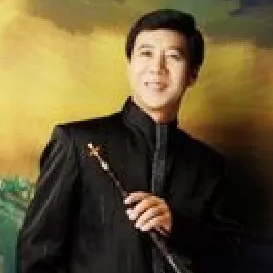Zhou Dong Dynasty

Zhou Dong Dynasty, Hebei people. In 1971, he worked and studied in the Yongnian County Theater Troupe of Hebei Province. In August 1975, he represented Hebei Province in Beijing to participate in the National Solo Solo Tuning and won the Outstanding Program Award. In September, he was transferred to the China Broadcasting Art Troupe to work as the chief suona player.
Born in Jinan, Shandong in 1960, his ancestral home is Yongnian County, Hebei Province. He studied art with his father since childhood (father Zhou Weisuo: the former flute and suona performer of the avant-garde song and dance troupe, went to the Soviet Union with the Chinese Art Troupe in 1957 to participate in the World Youth Festival and won the award. Dizi Gold Award Laureate). He took the stage at the age of nine and represented the region twice in the Hebei Province Performing Arts Competition, known as the "Little Golden Suona".
In 1975, after a series of selections, he represented Hebei Province to participate in the national solo and solo competitions and became the youngest winner. In the same year, he joined the China Radio National Orchestra. Over the past 40 years, he has visited famous teachers and learned from others, forming his own unique playing style. The playing tone is pure and sweet, skilled and superb, the style is sincere, simple, delicate and touching, full of passion, and has a more perfect interpretation and unique artistic insight of the connotation of each piece of music.
In 1978, he recorded the first suona solo "Joy of Harvest" for the Central People's Broadcasting Station. After this song was broadcast, the response was strong, and the name of Zhou Dongchao also flew to the north and south of the river with the radio waves. Since then, he has recorded many suona works for CCTV every year, such as "Welcome to Spring", "Blossoming", "Reporting Good News", "Shandong Qin Shu", "One Flower", "Hundred Birds Chaofeng", "Family Portrait", "Celebrating the Harvest" and "Fengyang Song" "Nostalgia" etc. For the Central People's Broadcasting Station, China Radio International, CCTV, Beijing TV and many other radio stations and TV stations, he has recorded "Music Figures", "Huaxia Notes", "China's Unique", "Shenzhou Music", "The Sound of Music" and "Rotating Stage". "Famous Songs", "Introduction to Father and Son Two Generations" and other programs, columns, interviews and other programs, accumulatively totaling more than 50 solo and concerto pieces.
Recorded and published: "Chinese Golden Suona", "Zhou Dongchao South-Eastern Northwest", "Chinese Suona Golden Melody", "Golden Suona Popular Tune", "Wangpingchuan", "Golden Suona Hundred Birds Chaofeng" and other solo albums.
Songs composed: "Loss Love", "Wangpingchuan", "Spring in Yanhe", "Hebei Bangzi Opera", "Yu Diao", "Hometown", "Chun Busy", "Shandong Qin Shu", etc. have been approved by the Central Conservatory of Music, China Conservatory of Music, Shanghai Art colleges such as Conservatory of Music, Xi'an Conservatory of Music, Tianjin Conservatory of Music, Shenyang Conservatory of Music are included in teaching materials. Among them, the work "Loess Love" was awarded the "Excellent Program Award" by the Central People's Broadcasting Station. In 1993, he participated in the 3rd National National Instrumental Music Competition and won the "First Prize" for both works and performances.
In 1995 was named a national first-class actor
In 1997, he participated in the "Chinese New Year National Concert" jointly organized by the Ministry of Radio, Film and Television and the Ministry of Culture, and his suona concerto "Happy Harvest Grain" was warmly received and highly praised by President Jiang Zemin.
Similar artist
Involving musical instruments
Involved portfolio
Involved news
Popular artists
- 01 Zhang Xiuyan
- 02 Liu Qingyao
- 03 Zhong Xiaotian
- 04 Jiang Ying
- 05 Li Xianyue cherish
 渝公网安备 50010702504639号
渝公网安备 50010702504639号